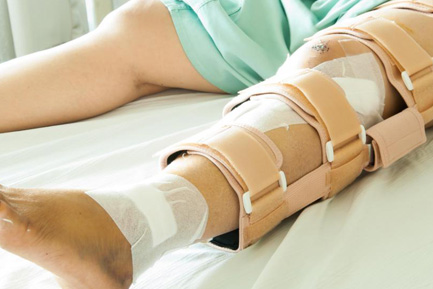
A bone fracture is a medical condition that occurs when a bone breaks or cracks due to excessive force or pressure. It is a common injury that can happen to people of all ages and can be caused by different factors.
Symptoms of Bone Fracture
The most common symptoms of a bone fracture include:
1.Pain – The pain can be severe, especially when trying to move the affected area.
2.Swelling – The area around the fracture may swell and become tender to the touch.
3.Bruising – The skin around the fracture may bruise or become discolored.
4.Deformity – The affected bone may appear out of place or twisted.
5.Limited mobility – It may be difficult to move the affected area, and there may be a loss of function.
Causes of Bone Fracture
Bone fractures can be caused by different factors, including:
1.Trauma – A bone fracture can result from a direct hit or impact, such as from a fall, car accident, or sports injury.
2.Osteoporosis – This is a condition that weakens bones, making them more prone to fractures.
Repetitive stress – Repeated movements or stress on a bone can cause small cracks that eventually lead to a fracture.
3.Medical conditions – Certain medical conditions, such as cancer, infections, or genetic disorders, can weaken bones and make them more susceptible to fractures.
Treatment for Bone Fracture
The treatment for a bone fracture depends on the severity and location of the injury. The most common treatment options include:
1.Immobilization – This involves the use of a cast, splint, or brace to keep the affected area still and allow the bone to heal.
2.Surgery – In some cases, surgery may be required to realign and stabilize the bone.
3.Pain management – Pain medications and other therapies may be prescribed to help manage pain and discomfort.
4.Rehabilitation – Physical therapy may be recommended to help improve mobility and strength after the bone has healed.
In conclusion, a bone fracture is a common injury that can cause pain, swelling, and limited mobility. It can be caused by trauma, medical conditions, or repetitive stress. Treatment options may include immobilization, surgery, pain management, and rehabilitation. If you suspect that you have a bone fracture, it is important to seek medical attention promptly to ensure proper diagnosis and treatment.
